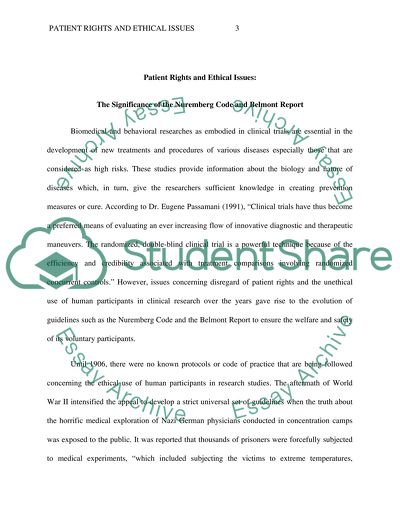Cite this document
(“Patient Rights and Ethical Issues: The Significance of the Nuremberg Essay”, n.d.)
Patient Rights and Ethical Issues: The Significance of the Nuremberg Essay. Retrieved from https://studentshare.org/health-sciences-medicine/1455690-patient-rights
Patient Rights and Ethical Issues: The Significance of the Nuremberg Essay. Retrieved from https://studentshare.org/health-sciences-medicine/1455690-patient-rights
(Patient Rights and Ethical Issues: The Significance of the Nuremberg Essay)
Patient Rights and Ethical Issues: The Significance of the Nuremberg Essay. https://studentshare.org/health-sciences-medicine/1455690-patient-rights.
Patient Rights and Ethical Issues: The Significance of the Nuremberg Essay. https://studentshare.org/health-sciences-medicine/1455690-patient-rights.
“Patient Rights and Ethical Issues: The Significance of the Nuremberg Essay”, n.d. https://studentshare.org/health-sciences-medicine/1455690-patient-rights.


